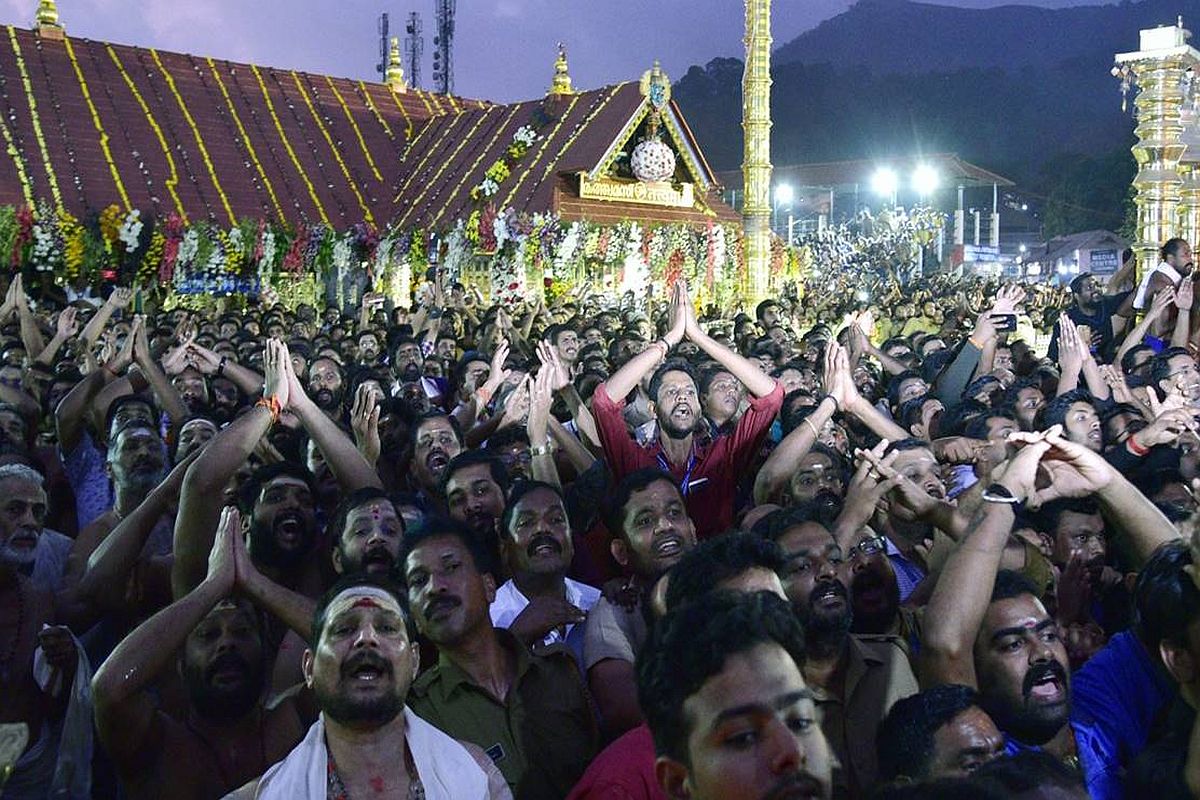Kerala’s Left Front government’s U-turn on the issue of allowing women of all ages to enter the Sabarimala shrine has come as no surprise to political analysts as that was a key factor behind the Left’s rout in the Lok Sabha election in May. When the Supreme Court in September 2018 overturned the restriction on the entry of women between the ages of 10 and 50 to the shrine, declaring it unconstitutional and discriminatory, the Left Front government went all out to ensure implementation of the judgment.
Defying the general sentiment that the court’s order was an incursion into their customs and beliefs and ignoring the massive public outrage over menstruating women being allowed to enter the shrine of the ‘celibate’ God Ayyappa, the CPI-M led government facilitated the entry of at least two young women into the temple, providing them with police escort.
Advertisement
The southern state was on the boil and the whole issue turned into a political hot potato that the BJP cashed in on, portraying it as an assault on religious freedom. The same party which recently swore to stand by the top court’s verdict in the Ayodhya case, whatever the outcome, had no compunctions about blatantly flouting the court’s order in the Sabarimala case. The Congress in Kerala too backed Ayyappa devotees and reaped the benefits of their decision by an exemplary showing in the general election winning 16 of the state’s 20 Lok Sabha seats.
Ironically, the BJP didn’t win a single seat. Now, with the Supreme Court turning over the review petitions in the Sabarimala case to a sevenjudge bench but refusing to stay its earlier order allowing women of all ages to visit the shrine, the Left Front government has gone back on its stated position on gender equality and declared that it will do nothing to facilitate those women who wish to enter the shrine. The Devaswom minister, in-charge of temples in the state, has declared sternly that there is no room for activism in religion. Ten young women from Andhra Pradesh who wanted to visit the shrine were turned back.
The CPI-M led government’s anti-feminist stance is distinctly political in nature given that the next Assembly elections are due in mid-2021 and Kerala is known to vote along caste and community lines despite its famed tradition of throwing out the incumbent every five years. Communism in India has always been practised in practical terms, with realpolitik often triumphing over ideology. The Sabarimala shrine opened for its most important pilgrim season last week and it promises to be another tense couple of months as several women activists are gearing up to defy a traditional practice mired in myth and ancient lore in the face of stiff opposition from the believers.
Nearly ninety years after Kerala’s historic temple entry movement championed by Mahatma Gandhi that removed the ban on lower castes visiting places of worship, another such campaign is gaining ground in the state.











